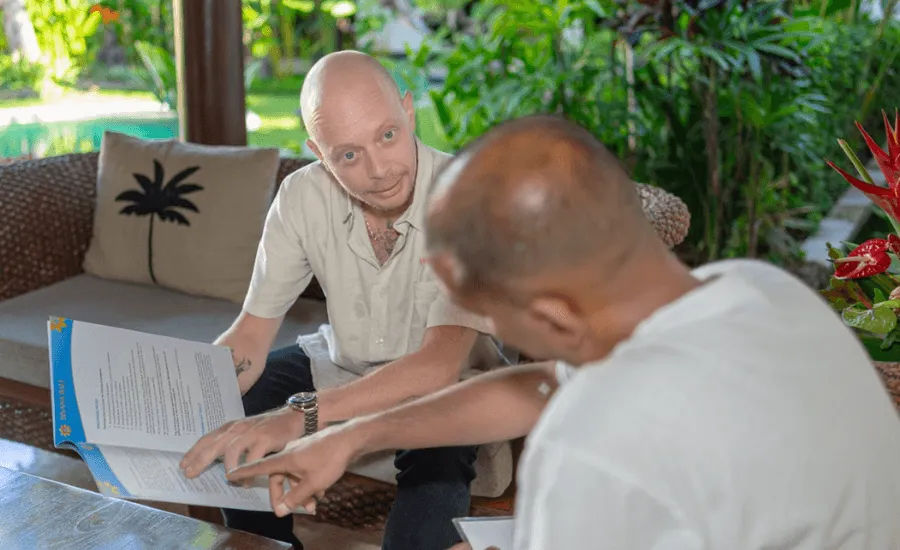
Benzodiazepine Addiction Treatment
Anxiety is a common emotion. It’s a response to the unknown. When someone doesn’t know the outcome of something, they may feel a sense of dread about it. However, anxiety is fleeting, and it’s supposed to be a response to a real possibility. It’s meant to be rational.
For some people, anxiety is not fleeting. They feel it so often that it can almost be their default state. For them, their anxiety is not rational. They may be anxious over all kinds of scenarios, no matter how unlikely. No matter the odds, their minds will go to the worst-case scenario and become anxious over those scenarios.
Anxiety is among the most common mental health disorders in Australia, with around 17% of the population experiencing an anxiety disorder.
Like other illnesses, anxiety disorders can be managed with medication. Benzodiazepines are a common type of medication that can be used to treat anxiety disorders.
The trouble is that benzos can be addictive, and benzodiazepine use can have a detrimental impact on a person’s life. However, addiction can be overcome with the right treatment and support. Sivana Rehab is prepared to give people from all over the world treatment and support.
What is Benzodiazepine Addiction?
Benzodiazepine addiction is a substance use disorder wherein a person cannot control their use of benzodiazepines. People who have this disorder will use benzodiazepines even if they suffer adverse consequences as a direct result of their drug use.
Benzodiazepines are not meant to be a long-term medication, but some people can develop an addiction and take them for longer than prescribed or in higher doses. Users may find themselves unable to function normally without the drug. They may experience intense cravings and prioritise the acquisition and use of benzodiazepines over other aspects of their lives.
Benzodiazepine Addiction Treatment at Sivana Rehab
The addiction treatment programme at Sivana Rehab seeks to comprehensively help people recover from addiction. Some of our treatment options include:

Detox
Medical detox is often the first step in drug addiction treatment. However, detoxification can cause a person to suffer withdrawal symptoms, which can be distressing. Despite the distress that withdrawal symptoms can cause, detox is an important part of treatment.
Residential Treatment
Inpatient treatment can be a vital part of treatment for benzodiazepine use. while in a treatment centre, a patient will not have access to medication besides what is medically necessary. They’ll also undergo intensive treatment to help them develop the skills they need to overcome addiction, manage cravings, and minimise the risk of relapse when they leave the centre.
Because benzo use often begins as a treatment for a mental health disorder, our centre offers substance abuse and mental health services to help treat co-occurring disorders.
Our treatment facility in Bali can also potentially put a patient thousands of kilometres away from their normal circumstances, which can give them the space they need to reflect on their addiction with clarity.


Sober Living
A sober living home, sometimes called a halfway house, can represent a transition from inpatient care to the real world. While in a sober living facility, residents can practice living sober, independent lives. They cook their own meals and tidy their own spaces. They’ll also participate in programmes that help them rebuild their lives.
Once a person completes a sober living programme, they can then transition back into their communities and begin an outpatient programme to help them maintain their sobriety.
Those who want to join our sober living programme must first complete our inpatient treatment.
Holistic Treatment Options
At Sivana Rehab, we believe in a comprehensive approach to recovery and seek to treat the mind, body, and spirit. This is why use numerous holistic treatments.

Yoga
Yoga can help treat benzodiazepine addiction by helping patients relax, reduce stress, and improve their overall mental well-being. Through mindful breathing and physical postures, yoga can help regulate the central nervous system and increase self-awareness. These can also help address any underlying anxiety disorders.
Furthermore, the practice fosters a sense of discipline and mindfulness, supporting recovery and helping individuals develop healthier coping mechanisms.

Acupuncture
Acupuncture can help benzodiazepine addiction by balancing the body’s energy and helping people relax. It can help alleviate withdrawal symptoms, reduce anxiety, and support overall well-being.
By targeting specific points, acupuncture aims to support the body’s natural healing processes and improve mental clarity, which can aid in recovery.

Holotropic Breathwork
Holotropic breathwork can help treat benzo addiction by inducing altered states of consciousness through the practice of controlled breathing. This process can facilitate emotional release, reduce stress, and increase self-awareness.
By addressing underlying psychological issues and promoting deep relaxation, this practice can support the recovery process and aid in reducing cravings and managing anxiety.

Chiropractic Therapy
Chiropractic therapy can help with addiction to benzodiazepines by addressing physical discomfort. Chiropractic treatment may help reduce stress and enhance physical function by realigning the spine and improving nervous system function.
This can indirectly support a patient’s recovery by improving physical health and reducing symptoms that might lead to benzo use.
Effects of Benzo Addiction
Benzo addiction can have some effects on a person. One of the most prominent effects is tolerance. Tolerance is when a person’s body gets used to the drug, which can dull its effects. This can cause some users to take more of the drug to achieve the same effects, which can increase the risk of benzodiazepine overdose.
Another effect of addiction is dependence. When a person becomes dependent on benzodiazepines, they need to take benzos to function normally. This can also cause them to suffer withdrawal symptoms if they are ever unable to take benzodiazepines.
Long-term benzo use can also impair coordination and affect memory, attention, and cognitive functioning.
Ironically enough, long-term benzodiazepine use can worsen underlying disorders, which can lead to worsened anxiety and more frequent panic attacks. Some users can also experience significant mood swings, including depression and irritability.
Prolonged use of benzodiazepines can also lead to long-term health problems such as liver damage and respiratory issues.
Benzo addiction, like other addictions, can also have social consequences. Many people who struggle with addiction prioritise their habits over spending time with friends and family, which can lead to strained relationships.
Doctor shopping is not universally illegal; some places have laws against it.
What to Expect With Benzodiazepine Withdrawal
Benzodiazepine withdrawal can be distressing, and withdrawal symptoms can vary in severity based on factors such as dosage, duration of use, and individual health.
Initial symptoms of withdrawal typically include anxiety, agitation, and restlessness. As withdrawal progresses, individuals might experience insomnia, muscle tremors, and sweating.
Severe cases of withdrawal can include symptoms such as seizures, hallucinations, and delirium.
The withdrawal process typically begins within a few days of reducing or stopping the medication and can last several weeks.
Because of the severity of benzodiazepine withdrawal, it is recommended that patients taper off benzodiazepines gradually under medical supervision to minimise discomfort and reduce the risk of complications.
Support from healthcare providers, along with therapy and potentially medication to manage symptoms, can make the recovery process easier for patients.
Treat Benzodiazepine Misuse at Sivana Rehab
Benzodiazepines can be incredibly useful. Other than treating anxiety, they can be prescribed to treat muscle spasms and seizures, and their sedative effects can help address insomnia.
Despite their valid medical uses, some people can misuse them and become addicted. It can be difficult to address benzodiazepine misuse and dependence because of the underlying condition that requires the medication in the first place.
But at Sivana Rehab, our treatment can address not just the substance use disorder but it can also help address the underlying condition, allowing patients to live sober lives and manage their anxiety in a healthy way.
FAQs
Meth addiction can have numerous effects on a person’s mental and physical health. Many people who have become dependent on ice can suffer various short-term effects and long-term consequences as a result of their drug use.
Can You Overdose on Benzodiazepines?
Yes, it is possible to overdose on benzodiazepines, especially if a person takes high doses or couples them with another substance, such as alcohol.
What are the Most Common Benzodiazepine Withdrawal Symptoms?
The most common withdrawal symptoms include anxiety, insomnia, tremors, sweating, irritability, nausea, headaches, muscle pain, and dizziness.
Can You Overcome Benzodiazepine Dependence?
Yes, with the right care and support, a person can overcome benzodiazepine dependence.

